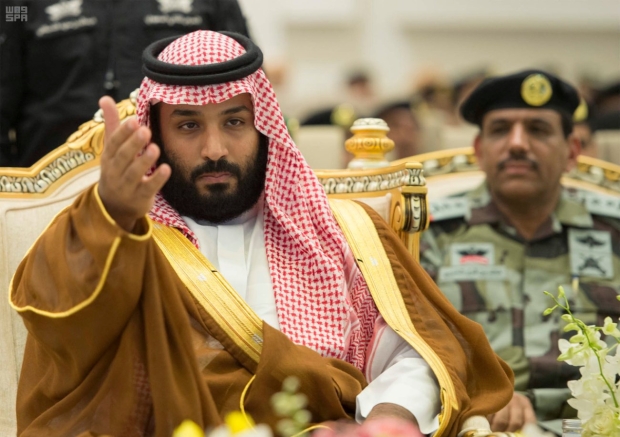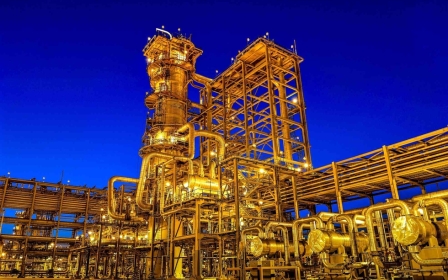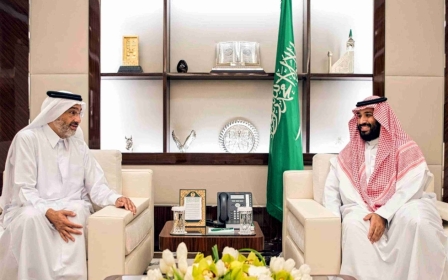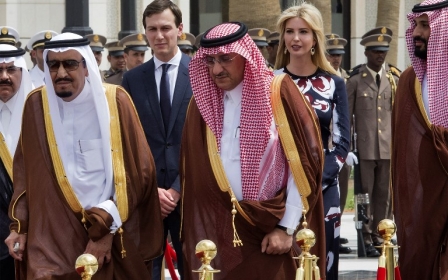ANALYSIS: Saudi economic future looks bleak amid falling oil prices
Oil-rich Saudi Arabia faces a sticky problem, analysts say.
Its economy is barely growing. Its government is spending way more than it receives. And its economic reforms, which would move the country away from reliance on oil, are operating at a snail’s pace.
If something doesn’t give, then the government may need to hold “a fire sale”. At least, that’s what one financial firm warns.
Even though the kingdom’s plan of action is to steadily ditch its dependence on oil, the primary problem now is the weak oil market.
The price of Brent crude oil, which as recently as mid-2014 traded higher than $100 a barrel, now changes hands for around $52. The impact on the Saudi economy has been brutal because export revenue from hydrocarbons (including oil) is more than three times the level of non-oil exports.
The result is that this year the economy is expected to expand a mere 0.1 percent in real, or inflation-adjusted, terms, according to a recent report from the International Monetary Fund.
Boxed in
Worse still, there is little the government can do about it.
Saudi nationals are not ready to work in the private sector. They do not have the skills, and most of the private sector pays less than the government.
- Garbis Iradian, Institute of International Finance
“They can’t get any more money from oil,” said Marcus Chenevix, a Middle East and North Africa (MENA) analyst at TS Lombard in London. “Saudi is stuck with regard to oil production.”
How much cash is brought in from crude oil sales is a function of the world price of oil (in dollars per barrel) and the number of barrels sold. And there’s the rub because in reality the state-owned oil company can neither increase production nor charge higher prices.
A production increase of the level needed to move the needle on revenue would also be of sufficient size to crush the price of crude oil globally.
Saudi is the second largest producer in the world, pumping just over 10m barrels a day, according to the US Energy Information Administration. Any significant upward move in production could send prices below $40, according to a recent report from TS Lombard.
The report also highlights that the country’s cash reserves are set to continue to fall.
A drop in the price of oil would only make matters worse and may precipitate “a fire sale of state assets within five years,” the report states.
It is an outcome that the country's leaders will certainly want to avoid.
Raising the price charged per barrel of crude sold is out of the question. That’s because oil is a global commodity and the price is set by the market.
Fiscal woes
Meanwhile, oil market woes are depleting government reserves.
“The government still has a large deficit of around 10 percent of GDP,” said Garbis Iradian, chief economist for MENA at the Washington DC-based Institute of International Finance. “Last year it was between 16-17 percent.”
In other words, things are getting better on the fiscal side.
The improving fiscal situation is something of a good news, bad news drama.
While it is good news that the government in reigning in spending, the bad news is that capital spending has been reduced. It was just capital outlays that helped boost the average growth in the non-oil sector to around 6 percent annually over the period 2000-2014, according to IIF.
Not so much recently, as the spending on such projects has been slashed. This year the non-energy sector is forecast to grow 0.6 percent, which although measly, is better than the minus 1.7 percent for the energy sector.
An essential part of the reform effort is to stimulate private sector enterprise to replace oil as the engine of growth for the country.
A centrepiece of the reform is the much–publicised privatisation of the state-owned oil company Aramco.
Also, there are public-private partnership programmes (PPP), which have “considerable scope to increase efficiency and productivity,” according to a recent report from IIF.
In PPPs, the government contracts with private companies to provide services for long-term projects. Most important in these arrangements is that the private enterprise bears "significant risk and management responsibility," according to the World Bank.
Such efforts vary by country, but can be used for building and operating infrastructure projects such as water treatment plants, for example.
However, it is unlikely that the PPPs will be able to make any dent in Saudi’s unemployment problem. The jobless rate stands at 12.3 percent and the government wants to bring it down to 9 percent by 2020, IIF says.
Skills deficit
Fat chance of that happening, because the new entrants to the workforce simply aren’t qualified.
“Saudi nationals are not ready to work in the private sector,” said IIF's Iradian. “They do not have the skills, and most of the private sector pays less than the government.”
Of course, the pay differential means that even if public sector employees did have the skills to compete in industry or commerce, they likely wouldn’t take such jobs.
The unemployment problem is exacerbated by the fact “that most high-school graduates aren’t willing to take on low skilled professions,” said TS Lombard’s Chenevix.
Vision 2030, Saudi Arabia's outline for changing the economy, includes what the law firm Al Tamimi & Co. calls "an ambitious road-map for education reform".
"The success of the Vision depends in large measure on reforms in the education system generating a better basis for employment of young Saudis," the company's website says.
Anyone who has witnessed similar efforts to reform a national school curriculum by other countries, such as the UK and the US, will know that improving a country's education system is neither quick nor easy.
An overhaul of education in any nation could be fraught with national political battles and resistance from those in the teaching profession. In Saudi things would likely be similarly problematic.
The malaise gets worse. Even if the local population had the necessary qualifications to work in the private sector, there are tremendous barriers to operating a private sector company.
The country ranks 94th out of a total of 190 countries on the World Bank’s Ease of Doing Business list - putting it well behind other states in the geographical neighbourhood, such as Qatar and the United Arab Emirates.
It is nowhere near the rankings of the UK and US, which come seventh and eighth on the list, respectively.
This matters because managers of private enterprises have choices about where they set up shop. If the business landscape looks too bureaucratic, they will shy away and find other places to establish new ventures.
With that long laundry list of problems, the heir to the throne, Mohammed bin Salman, certainly has his work cut out steering the economic ship.
Middle East Eye propose une couverture et une analyse indépendantes et incomparables du Moyen-Orient, de l’Afrique du Nord et d’autres régions du monde. Pour en savoir plus sur la reprise de ce contenu et les frais qui s’appliquent, veuillez remplir ce formulaire [en anglais]. Pour en savoir plus sur MEE, cliquez ici [en anglais].





